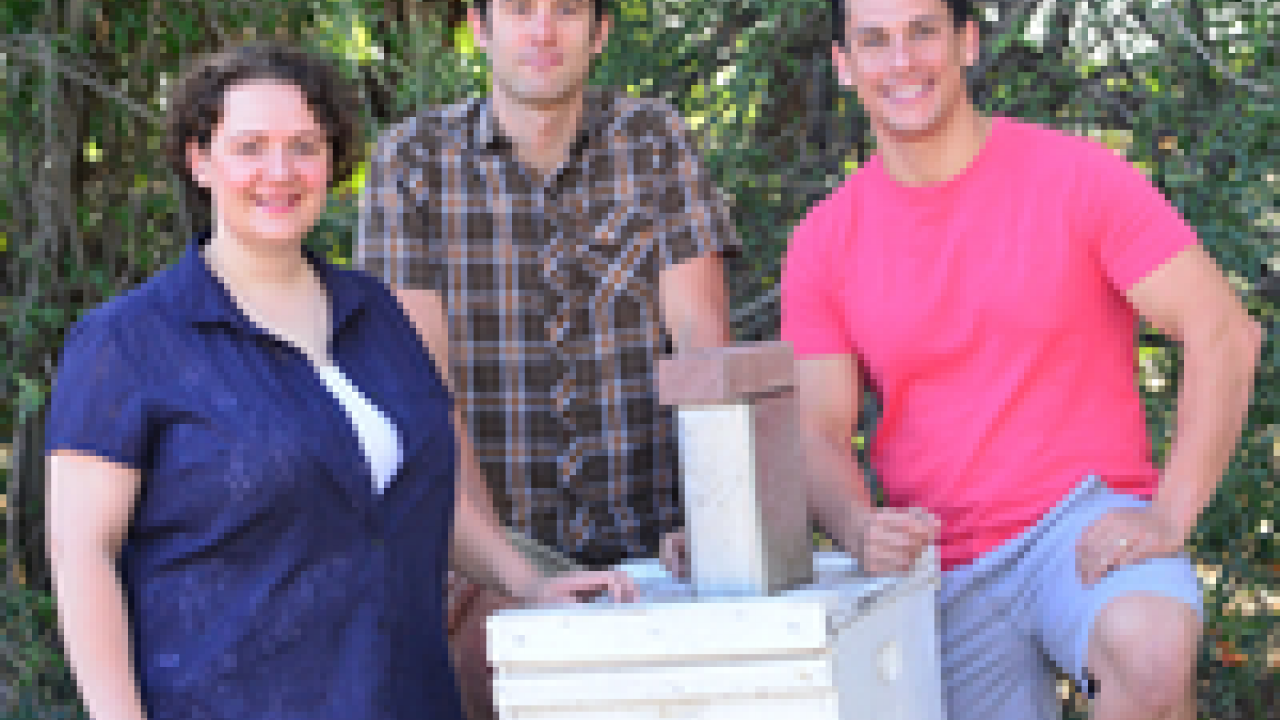
January 15, 2015
A Message from Dean Helene Dillard: CA&ES staff play an indispensable role in the success of our academic mission
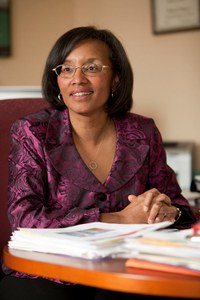
A new year has begun and with it comes a renewed sense of enthusiasm to accomplish our mission of educating students, conducting cutting-edge research, and reaching out to Californians and people across the world who have an interest in what we do here in the College of Agricultural and Environmental Sciences.
It’s been a year since I became dean, and I want to take a few moments to acknowledge the hard work of the staff. These valued members of our college play an indispensable role in keeping this enterprise moving forward. They take care of our horses, sheep, goats, dairy cows, and other animals in our livestock facilities. They fix our computer systems, install new software, and design our webpages. They keep the greenhouses growing, care for research orchards, and groom seedbeds for vegetable and field crops. More than one-third of them support our laboratories—technicians, engineers, statisticians, survey workers, and research associates.
Our staff members recruit new students and counsel current students navigating a path to graduation. They work with donors who fund student support, endowed chairs, and new buildings. They organize events like commencement and College Celebration. They tell our story to alumni, supporters, policy makers, and the media. They analyze personnel needs and help us balance our budget. They monitor contracts and grants. They ensure safety in our buildings. They greet visitors to the Dean’s Office. They make sure paychecks and travel reimbursements arrive in a timely fashion. And they maintain administrative support in many other ways in departments, centers, institutes, specialty units, and the Dean’s Office.
Altogether we currently employ 766 staff members to support the academic mission of the college. In addition, nearly 500 students work in the college during the course of the year. I recognize that without them, our college wouldn’t be as successful as it is. I know our staff care about our reputation because I’ve seen it in the quality of the work they produce and hear it reflected in comments made to me. And that makes me proud to be affiliated with this university.
Many of us begin a new year with new goals and intentions. The university offers a number of programs to help employees find more health, wellness, and balance in their lives. I encourage staff members to explore them. For instance, the annual wellness fair will be held from 11 a.m. to 1 p.m. in the ARC ballroom on February 18. If meditation sounds appealing, a campus group meets Tuesdays and Thursdays at noon in Room 1226 of Dutton Hall. Staff Development and Professional Services offers brown bag presentations, courses, and certificate series throughout the year to help employees learn new skills and support career advancement.
When we invest in ourselves personally and professionally, everyone benefits. UC Davis is a special place in no small measure by our commitment to professionalism and the accomplishments of our college. Thanks for being part of the CA&ES team and best wishes for a fabulous 2015.
Helene R. Dillard
Dean
College of Agricultural and Environmental Sciences
hrdillard@ucdavis.edu
Who
Amanda Guyer, Huaijun Zhou selected as Chancellor’s Fellows
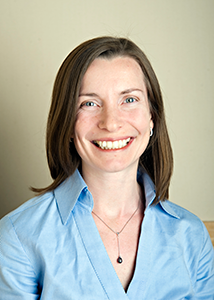 Amanda Guyer (Department of Human Ecology) and Huaijun Zhou (Department of Animal Science) are among 10 faculty members at the associate professor level to be selected for the 15th class of UC Davis Chancellor’s Fellows. The distinction recognizes faculty in the early stages of their careers for outstanding research and teaching, as well as service to the university.
Amanda Guyer (Department of Human Ecology) and Huaijun Zhou (Department of Animal Science) are among 10 faculty members at the associate professor level to be selected for the 15th class of UC Davis Chancellor’s Fellows. The distinction recognizes faculty in the early stages of their careers for outstanding research and teaching, as well as service to the university.
Guyer’s work is having a major impact on the interdisciplinary field of developmental neuroscience and psychopathology, as evidenced by the caliber of journals in which she has been published and by the number of citations of her journal articles, wrote her nominator, Dean Helene R. Dillard. A letter of recommendation that came from outside the university in connection with Guyer’s promotion to associate professor in 2013 placed her among the top five people in the country in her cohort. Another letter described her work as “original and leading-edge to redirect the field toward early disease markers and sociological contributing factors.” Dillard described Guyer as a terrific teacher, selected by undergraduates in 2012–13 as outstanding faculty member in human development. She started at UC Davis as an assistant professor in 2009, after six years of postdoctoral work at the National Institute of Health. She also is a faculty member in the Center for Mind and Brain.
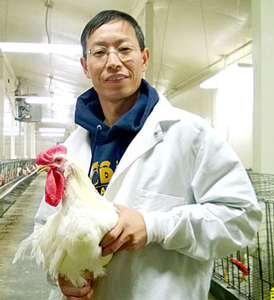 Huaijun Zhou is an immunogeneticist who defines the mechanisms of host immune response to infection in poultry using genetic and functional genomic approaches. By blending molecular and biostatistical methodologies, “his creative genius is advancing the field at high speed,” wrote Dean Dillard, noting the importance of Zhou’s research to global food security. Zhou is the recipient of a $6 million Feed the Future grant from the U.S. Agency for International Development. Dillard commended Zhou’s “pay it forward” attitude — he shares resources, he mentors developing scientists, he’s the consummate colleague in every sense of the word. Similarly, in the classroom, he strives to develop students’ critical thinking and understanding of the science behind health. He started at UC Davis as an assistant professor in 2011–12 and became an associate professor in 2013. Previously he was an associate professor in the Department of Poultry Science at Texas A&M University.
Huaijun Zhou is an immunogeneticist who defines the mechanisms of host immune response to infection in poultry using genetic and functional genomic approaches. By blending molecular and biostatistical methodologies, “his creative genius is advancing the field at high speed,” wrote Dean Dillard, noting the importance of Zhou’s research to global food security. Zhou is the recipient of a $6 million Feed the Future grant from the U.S. Agency for International Development. Dillard commended Zhou’s “pay it forward” attitude — he shares resources, he mentors developing scientists, he’s the consummate colleague in every sense of the word. Similarly, in the classroom, he strives to develop students’ critical thinking and understanding of the science behind health. He started at UC Davis as an assistant professor in 2011–12 and became an associate professor in 2013. Previously he was an associate professor in the Department of Poultry Science at Texas A&M University.
The Chancellor’s Club and the Annual Fund support the fellows program, which provides a $25,000 award to each honoree. The title “Chancellor’s Fellow” is theirs for five years. With the new appointments, Chancellor Linda Katehi and her predecessor, Larry N. Vanderhoef, have named 98 Chancellor’s Fellows since the program began in 2000. A reception for the new fellows is planned in the spring. To learn more about all the new Chancellor’s Fellows, see Dateline.
Amanda Guyer
Department of Human Ecology
530-297-4445
aeguyer@ucdavis.edu
Huaijun Zhou
Department of Animal Science
530-752-1034
hzhou@ucdavis.edu
Bruce Hammock elected fellow of National Academy of Inventors
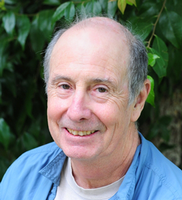 Bruce Hammock, a distinguished professor of entomology who holds a joint appointment with the UC Davis Comprehensive Cancer Center, has been selected as a fellow of the National Academy of Inventors (NAI).
Bruce Hammock, a distinguished professor of entomology who holds a joint appointment with the UC Davis Comprehensive Cancer Center, has been selected as a fellow of the National Academy of Inventors (NAI).
The NAI honors academic invention and encourages translation of inventions to benefit society. Hammock has made major innovations in multiple fields. Most recently his laboratory found potent enzyme inhibitors that dramatically reduce inflammation, inflammatory pain, and neuropathic pain.
Hammock is one of five UC Davis NAI fellows, including Chancellor Linda P.B. Katehi. He joins two other UC Davis scientists in the 170-member Class of 2013 fellows:
- Kyriacos Athanasiou, department chair and distinguished professor of biomedical engineering, and the Child Family Professor of Engineering, who holds a joint appointment in the Department of Orthopaedic Surgery.
- M. Saif Islam, professor in the Department of Electrical and Computer Engineering, and co-director of the Center for Nano and Micro Manufacturing, or CNM2.
The new fellows will be inducted March 20 at the NAI's annual conference, to be held at the California Institute of Technology in Pasadena. To learn more read a post by Kathy Keatley Garvey.
Bruce Hammock
Department of Entomology and Nematology
530-752-7519
bdhammock@ucdavis.edu
Ruihong Zhang named SARTA CleanTech Innovator of the Year in 2014
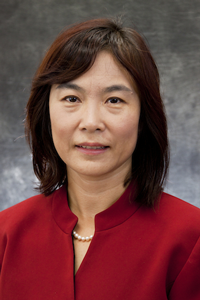 Ruihong Zhang, a professor in the Department of Biological and Agricultural Engineering, was named the 2014 CleanTech Innovator of the Year by the Sacramento Regional Technology Alliance (SARTA). She received the award in November.
Ruihong Zhang, a professor in the Department of Biological and Agricultural Engineering, was named the 2014 CleanTech Innovator of the Year by the Sacramento Regional Technology Alliance (SARTA). She received the award in November.
The award recognizes an outstanding individual in the Sacramento region for the creativity, novelty, application, importance, commercialization, and effectiveness of the innovation. Clean Tech includes renewable energy, energy efficiency and demand response, environmental-enhancing technologies, and enabling technologies.
Zhang’s career has focused on discovering and demonstrating new methods of converting a variety of organic residues into biogas fuels and other valuable products. She oversaw development of the on-campus Anaerobic Phased Solids Digester, which processes food wastes from the campus and some Bay Area restaurants. This technology reached the market in 2012, when Sacramento-based Clean World Partners unveiled the United States’ first commercially available, high-solid anaerobic digestion system at American River Packaging.
Zhang’s technology will be employed in a new campus digester being built at a UC Davis landfill site and will process 20,000 tons per years of organic waste, while producing electricity as a byproduct.
Ruihong Zhang
Department of Biological and Agricultural Engineering
530-754-9530
rhzhang@ucdavis.edu
What
Call for faculty volunteers on 2015–16 CA&ES college committees
The CA&ES Executive Committee is seeking faculty volunteers to participate on standing committees for the 2015–16 academic year. Service on these committees is an important part of shared governance that affects decisions regarding college education, research, and outreach.
Anticipated committee vacancies include graduate education, international programs, rules and jurisdiction, student actions and individual majors, undergraduate majors and courses, undergraduate program review, and faculty personnel. Opportunities exist for academic senate and academic federation members, depending on the committee, and range between one and six vacancies per committee.
Contact Brenda Nakamoto in the CA&ES Dean’s Office for more details and a simple volunteer form to be returned no later than February 6, 2015. The CA&ES Committee on Committees will finalize committee membership for approval at the college faculty meeting May 28, 2015.
Brenda Nakamoto
CA&ES Dean’s Office
530-752-1606
bvnakamoto@ucdavis.edu
Feature story chronicles development of “Seed Central”
A recent feature story published online by the Crop Science Society of America tells the story of how the industry and university partnership “Seed Central” is helping the UC Davis region become the “Silicon Valley of the seed industry.”
The article, by Madeline Fisher, traces the development of the public-private partnership from a discussion at the UC Davis Seed Biotechnology Center about how many seed companies were in the area. Board member François Korn, whose company SeedQuest is the central information website for the global seed industry, determined that there were 50 seed companies within an hour’s drive and many more within a reasonable drive. Korn and UC Davis plant sciences professor Kent Bradford launched Seed Central four years ago. It hosts featured speakers and monthly networking events that have become extremely popular with seed industry professionals and the UC Davis community. Read more about Seed Central.
Kent Bradford
Department of Plant Sciences
530-752-6087
kjbradford@ucdavis.edu
Nominations for Kinsella Memorial Prize due by March 16, 2015
Nominations for the Kinsella Memorial Prize for outstanding individuals who have submitted a Ph.D. dissertation to Graduate Studies by March 6, 2015 can be submitted to the CA&ES Dean’s Office until March 16, 2015.
The prize was established in honor of John E. Kinsella, the late CA&ES professor and dean. The major professor of the recipient must have an appointment in the college. Each graduate group or program may submit one nomination. Nominations from the chair should include the name and department of the major professor, a one-page abstract of the dissertation, an electronic photo and short bio of the nominee, and a letter (three pages maximum) that elaborates on the quality and originality of the work, the multidisciplinary impact of the research, and the importance of the research to the college’s mission to serve agriculture, the environment, and human health and development.
Please send nominations to Phyllis Seelye (pseelye@ucdavis.edu or 754-8460), in the CA&ES Dean’s Office by Monday, March 16, 2015. The CA&ES Graduate Education Subcommittee will make the selection. The winner will receive $3,000 and be invited to the Graduate Studies Honors and Awards ceremony and be announced during the Graduate Studies commencement ceremony.
Phyllis Seelye
CA&ES Dean’s Office
530-754-8460
pseelye@ucdavis.edu
“The Downside of Resilience”—New York Times op-ed by Jay Belsky
An op-ed article in The New York Times by Jay Belsky, a professor in human ecology, questions the commonly held assumptions driving child development policies. In “The Downside of Resilience,” Belsky says that research should help us understand why some children come out of development programs with enhanced capabilities and fewer behavioral problems, while others don’t seem to be affected very much—or at all. There is no single factor, but genetics seems to play a role. New studies provide evidence of children’s differential susceptibility to their environments. This carries implications for scientists evaluating interventions, policy makers funding them, and parents rearing children. Read Belsky’s op-ed.
Jay Belsky
Human Ecology
530-752-9945
jbelsky@ucdavis.edu
Arboretum events
For more information, visit the arboretum website: http://arboretum.ucdavis.edu.
Folk Music Jam Session
Fridays, January 16, 30; February 13, 27, noon–1 p.m., Wyatt Deck
Folk musicians are invited to bring their acoustic instruments and play together informally over the lunch hour. All skill levels are welcome, and listeners are invited.
The Birds and the Trees: Stories in Natural History
Saturday, January 31, 3–4 p.m., Arboretum Terrace Garden
Join naturalist Steve Daubert for an hour of original stories that explore the lives of birds and the natural histories of redwood trees. Light refreshments will be served. Appropriate for adults and older children. Co-sponsored by Whole Foods Market, the event is free and three-hour parking is available in the Davis Commons Shopping Center.
Winter Birds in Davis: Slide Show and Tour
Sunday, February 8, 10:30 a.m., Environmental Horticulture, room 146
Learn about birds that winter in Davis during a one-hour slide show and talk. Then take a guided walking tour (weather permitting) to see birds in the Arboretum with docent Lois Richter. Parking is free on weekends in visitor lot 5.
Storytime Through the Seasons: Expedition to Africa
Sunday, February 8, 1–3 p.m., Arboretum Headquarters, Valley Oak Cottage (TB-32)
Explore the stories and nature of Africa in the Acacia Grove during an outdoor reading program suitable for children and families. Sponsored by the Arboretum Ambassadors, the event is free. Parking is available across the street from Arboretum Headquarters. Rain location is Environmental Horticulture, room 146
Walk with Warren: West-end Gardens
Wednesday, February 11, noon–1 p.m., Arboretum Gazebo
Join Warren Roberts, Arboretum superintendent emeritus, for an engaging noontime exploration of winter at the Arboretum’s west-end gardens. The event is free; limited, free one-hour parking is available along Garrod Drive near the gazebo or in nearby visitor parking lot 55.
When
Film screening of “Seeds of Time”: January 15, 2015
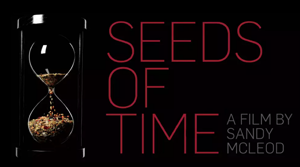 The Plant Breeding Center is hosting a public screening of the film “Seeds of Time,” followed by a discussion lead by Professor Paul Gepts, on January 15, 2015, from 6 to 8 p.m. in room 1005 of the Genome and Biomedical Sciences Facility.
The Plant Breeding Center is hosting a public screening of the film “Seeds of Time,” followed by a discussion lead by Professor Paul Gepts, on January 15, 2015, from 6 to 8 p.m. in room 1005 of the Genome and Biomedical Sciences Facility.
The award-winning film follows agriculture pioneer Cary Fowler in a race against time to protect the future of our food. Gene banks of the world are crumbling, crop failures are producing starvation-inspired rioting, and the accelerating effects of climate change are already affecting farmers globally. From Rome to Russia and, finally, a remote island under the Arctic Circle, Fowler’s passionate and personal journey may hold the key to saving the one resource we cannot live without: our seeds. See the trailer.
The screening is open to the public. However, registration is capped at 150. Register for the event.
Amanda Pietras
Seed Biotechnology Center
530-752-2159
ampietras@ucdavis.edu
Public release of research on 2014 voter turnout: January 22, 2015
The UC Davis California Civic Engagement Project (CCEP) will release new research on the 2014 voter turnout on January 22, 2015. The event—California’s new political realities: why low voter turnout may be the new normal and what can be done about it—will be held at Brigade Headquarters, 548 Fourth Street, San Francisco.
CCEP is part of the UC Davis Center for Regional Change. Brigade is a technology company addressing the problem of declining citizen power and engagement in democracy. CCEP director Mindy Romero will present new research on youth participation amid November’s record low voter turnout that will shed light on the civic and demographic forces affecting California voters in elections. A panel of young people will join the conversation to discuss the opportunities and barriers to voting they experience in their lives. To register.
Mindy Romero
California Civic Engagement Project
530-665-3010
msromero@ucdavis.edu
Social media for faculty educators and researchers: January 28, 2015
A lunchtime panel discussion to help faculty inform, inspire, and interact with targeted audiences through social media tools like Twitter, Facebook, and blogs will be held January 28, 2015, at the UC Davis Comprehensive Cancer Center Auditorium in Sacramento. “Social media for faculty educators and researchers” runs from 11:30 to 1:30 p.m.
The panel includes Paul Knoepfler, associate professor in cell biology and human anatomy; Michael Lairmore, dean and distinguished professor in the School of Veterinary Medicine; Kay Nelsen, residency program director in the Department of Family and Community Medicine; and Hammad Khan, a writer, medical student, and public health researcher in the School of Medicine.
The UC Davis Comprehensive Cancer Center Auditorium is located at 4501 X Street, Sacramento. RSVP to webcommunications@ucdmc.ucdavis.edu.
Pauline McAlpin
UC Davis Health System
916-734-9249
webcommunications@ucdmc.ucdavis.edu
Midwinter Beekeepers Feast—a Taste of Mead and Honey: January 31, 2015
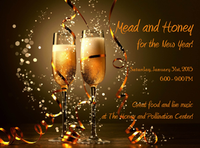 The UC Davis Honey and Pollination Center will host its second annual “Midwinter Beekeepers Feast—a Taste of Mead and Honey” on Saturday, January 31, 2015, from 6 to 9 p.m. The event will be held in the foyer of the sensory building at the Robert Mondavi Institute for Wine and Food Science.
The UC Davis Honey and Pollination Center will host its second annual “Midwinter Beekeepers Feast—a Taste of Mead and Honey” on Saturday, January 31, 2015, from 6 to 9 p.m. The event will be held in the foyer of the sensory building at the Robert Mondavi Institute for Wine and Food Science.
The event is described as an elegant evening of food and drink, including mead beverages. The menu has been designed by Ann Evans, founder of Yolo County Slow Food and the Davis Farmers Market. Catering is by the Buckhorn Steakhouse restaurant in Winters, Calif. Proceeds support the center’s efforts to become the world’s leading authority on honey bee health, pollination, and honey quality. Tickets to the event are $125 each. For additional information.
Amina Harris
Honey and Pollination Center
530-754-9301
aharris@ucdavis.edu
Stephanie Shimada
Robert Mondavi Institute
530-752-4180
shimada@ucdavis.edu
Western Center for Agricultural Health and Safety seminar: February 2, 2015
Carol Sipan, a visiting professor in public health at the UC Merced School of Social Sciences, Humanities and Arts, will present a seminar February 2, 2015 from 4 to 5 p.m. for the Western Center for Agricultural Health and Safety.
Her topic is “Scratching the surface: exploring farmworkers’ experiences with valley fever.” Sipan’s valley fever research is focused on increasing awareness among medical providers, high-risk groups, and their employers in order to reduce exposure risk and increase timely diagnosis rates.
Location of the seminar is the Center for Health and the Environment on Old Davis Road about one mile south of campus. The lecture is free and open to the public. No parking permit is required.
Cindy Valencia
Western Center for Agricultural Health and Safety
530-752-5253
cvavelar@ucdavis.edu
Seed Biology, Production, and Quality: February 10–12, 2015
“Seed Biology, Production, and Quality” will be held February 10–12, 2015 at the UC Davis Conference Center and Buehler Alumni Center. The course, offered by the UC Davis Seed Biotechnology Center, is intended for seed industry professionals, new employees, consultants, and producers.
Delivering improved varieties and crop protection through high-quality seed is a vital component of modern agricultural production systems. Seed producers must have an understanding of the biological factors that contribute to the development and maintenance of seed health, vigor, and viability, and how those qualities are measured. The course presents the scientific background for production, handling, storage, and quality control procedures in the seed industry and also includes new information on seed pathology and seed enhancement.
Registration is $850. For additional information about the course curriculum, faculty instructors, and to register, visit the SBC website.
Sally Mohr
Seed Biotechnology Center
530-752-5775
sjmohr@ucdavis.edu
Seed Central networking event: February 12, 2015
Seed Central hosts speakers and networking events that bring together seed and food professionals, UC Davis faculty, scientists, and students. The February 12 event begins with an afternoon session on plant pathology from 1:30 to 4 p.m. in room 3001, Plant and Environmental Sciences Building. Speakers include:
- Dario Cantu, assistant professor, Department of Viticulture and Enology
- Deborah Golino, director, Foundation Plant Services
Networking at the UC Davis Conference Center will be held from 4:30 to 6 p.m., followed by the evening’s featured speaker, Alex Cochran, global director for research and development, DuPont Seed Treatment Enterprise. He will address recent advances in seed applied technology.
Future Seed Central speakers include Neal Gutterson, vice president of agricultural biotechnology with DuPont Pioneer on March 12; and Joseph DiTomaso, UC Cooperative Extension weed specialist, on April 9. These events are free, but an RSVP is requested. More information is available at http://www.seedcentral.org/calendarofevents.htm.
Kathleen Bess-Esparza
Department of Plant Sciences
530-754-2162
klesparza@ucdavis.edu
Book launch forum—Harnessing Data for America’s Communities: February 13, 2015
A forum will be held February 13, 2015, at the Student Community Center to discuss a forthcoming volume of essays, “What Counts: Harnessing Data for America’s Communities.” The event is sponsored by the UC Davis Center for Regional Change, the Federal Reserve Bank of San Francisco, and the UC Davis Institute of Social Sciences.
The book, edited by the Federal Reserve Bank of San Francisco and the Urban Institute, outlines opportunities and challenges for the strategic use of data to reduce poverty, improve health, expand access to quality education, and build stronger communities. It is a response to both the explosive interest in using data to guide community initiatives, investment strategies, and policy choices, and the vexing questions that accompany data-driven approaches. The volume brings together authors from community development, public health, education, finance, and law to offer ideas for using data more meaningfully and effectively across sectors and institutions. Learn more about the book.
Valerie Chiappone
Center for Regional Change
530-752-3007
vchiappone@ucdavis.edu
Department of Plant Sciences celebrates 10 years: February 17, 2015
The Department of Plant Sciences will celebrate its 10-year anniversary February 17, 2015, in the UC Davis ARC Ballroom. Refreshments will be served.
The Department of Plant Sciences was created by the merger of four CA&ES departments: Agronomy and Range Science, Environmental Horticulture, Pomology, and Vegetable Crops. Read about the evolution of the former departments into the present day Department of Plant Sciences in articles by Brad Hooker.
Brad Hooker
Department of Plant Sciences
530-752-9716
gbhooker@ucdavis.edu
Patrick Mulvaney at “Great Chef” event: February 28, 2015
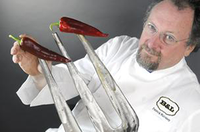 The second event in the “Great Chef Series” developed by the Robert Mondavi Institute for Wine and Food Science features Sacramento chef Patrick Mulvaney on February 28, 2015. Mulvaney began his career in 1985 cooking as an apprentice under some of Europe’s most renowned chefs. He was named a “rising star of the southwest” in 1988 for his work at the Phoenix restaurant Roxsand. After returning to California in the ’90s, he worked at restaurants such as Paragary’s and The Kitchen before opening his own establishment, Mulvaney’s B&L, in 2005. B&L features local, fresh, and organic ingredients.
The second event in the “Great Chef Series” developed by the Robert Mondavi Institute for Wine and Food Science features Sacramento chef Patrick Mulvaney on February 28, 2015. Mulvaney began his career in 1985 cooking as an apprentice under some of Europe’s most renowned chefs. He was named a “rising star of the southwest” in 1988 for his work at the Phoenix restaurant Roxsand. After returning to California in the ’90s, he worked at restaurants such as Paragary’s and The Kitchen before opening his own establishment, Mulvaney’s B&L, in 2005. B&L features local, fresh, and organic ingredients.
Participants registering for the full day will join Mulvaney in the Food Innovation Kitchen, where they will prepare a number of dishes and enjoy lunch with the prepared items. The afternoon session includes a lecture, and food, wine, and beer tastings in the Silverado Vineyards Sensory Theater. Registration for the full day is $250. Half-day registration is $50 ($25 with valid student identification).
Stephanie Shimada
Robert Mondavi Institute
530-752-4180
shimada@ucdavis.edu
Rustici Rangeland Science Symposium: March 3–4, 2015
The third Rustici Rangeland Science Symposium will be held March 3–4, 2015, at the UC Davis Conference Center. This year’s symposium will focus on two topics at the intersection of science, policy, and management of California’s working rangelands—water quality and sustainable public lands grazing. Registration for the symposium will open soon.
Day one will provide an overview of ranch water quality planning and regulation, the state of the science on water quality and rangeland management, and will address future directions in water quality planning and regulations. Day two will include perspectives from policy makers, the environmental community, and ranchers on creating sustainable public lands grazing policy. It will also address policy and research for sustainable public lands management and success stories of working public lands partnerships.
Tracy Schohr
Department of Plant Sciences
916-716-2643
tkschohr@ucdavis.edu
Fruit ripening and Retail Handling Workshop: March 17–18, 2015
The 21st annual Fruit Ripening and Retail Handling Workshop takes place March 17–18, 2015 at the UC Davis Buehler Alumni Center. Presented by the UC Davis Postharvest Technology Center, the workshop is for shippers and fruit handlers (wholesale and retail), and produce managers who are involved in handling and ripening fruits and fruit vegetables.
The workshop focuses on how to increase profits by reducing losses at the receiving end and delivering ready-to-eat fruits and fruit vegetables to consumers. In addition to studies on harvest maturity, storage conditions, and flavor quality, the program focuses on regulation of fruit ripening and cellular regulation of calcium deficiency disorders.
Registration for the course is $795. Course website.
Penny Stockdale
UC Davis Postharvest Technology Center
530-752-7672
pastockdale@ucdavis.edu
California Climate and Agriculture Summit: March 24–25, 2015
The fourth California Climate and Agriculture Summit will be held March 24–25, 2015 at UC Davis and at area farms and ranches. The event is hosted by the California Climate and Agriculture Network (CalCAN), a nonprofit advocacy group that represents sustainable agriculture organizations and allied groups working with California farmers. Registration for the event is open.
The summit begins with a tour on March 24 of the Rominger Brothers Farm, Hedgerow Farm, and a cattle ranch, followed the next day by plenary, workshop, and poster presentations at the UC Davis Conference Center and concluding with a wine-and-cheese reception. The summit is designed to explore the science, policy, and practice of climate change and sustainable agriculture in California. Participants include farmers and ranchers, agency staff, technical service providers, policy makers, university researchers, and advocates concerned with climate change challenges and opportunities in California agriculture. For more information about the program.
Renata Brillinger, executive director
California Climate and Agriculture Network
707-823-8278
renata@calclimateag.org
Queen bee-rearing short course: March 28–29, 2015
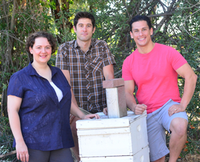 The UC Davis Department of Entomology and Nematology will offer a short course on queen bee-rearing techniques March 28–29, at the Harry H. Laidlaw, Jr. Honey Bee Research Facility.
The UC Davis Department of Entomology and Nematology will offer a short course on queen bee-rearing techniques March 28–29, at the Harry H. Laidlaw, Jr. Honey Bee Research Facility.
The course will be taught be UC Cooperative Extension apiculturist Elina Lastro Niño and assisted by staff research associates Bernardo Niño and Billy Synk. The course is designed for those who have some beekeeping experience and would like to move on to the next step of rearing their own queens or to try bee breeding. Topics include honey bee queen biology, basics of selective honey bee breeding, queen bee rearing techniques, hygienic behavior testing, and assessment of varroa mite levels.
Course registration is $200. Class size is limited to 14 participants. The Laidlaw facility is located on Bee Biology Road, west of the main campus. For additional information about the course, read a post by Kathy Keatley Garvey.
Bernardo Niño
Department of Entomology and Nematology
elninobeelab@gmail.com
CA&ES annual spring faculty meeting: May 28, 2015
The annual spring faculty meeting for the College of Agricultural and Environmental Sciences will be held May 28, 2015 in the AGR Room of the Buehler Alumni Center from 4 to 6 p.m. Mark your calendars and plan to attend.
Brenda Nakamoto
CA&ES Dean’s Office
530-752-1606
bvnakamoto@ucdavis.edu
Postharvest Technology of Horticultural Crops Short Course: June 15–26, 2015
Enrollment is now open for the 37th annual Postharvest Technology of Horticultural Crops Short Course. The two-week course will be held June 15–26, 2015 at the UC Davis Activities and Recreation Center.
The course, organized by the UC Davis Postharvest Technology Center, is an intensive study of the biology and current technologies used for handling fruits, nuts, vegetables, and ornamentals in California. It is designed for research and extension workers, quality control personnel in the produce industry, and business, government, or academic professionals interested in current advances in the postharvest technology of horticultural crops. The course will be of particular interest to technical professionals responsible for quality assurance, research, and extension activities related to fresh produce quality, safety, and marketability.
The two-week lecture and field trip option is limited to 55 participants; registration fee is $2,995. A one-week lecture-only option is limited to 25 participants; registration fee is $1,975. To learn more and to register.
Penny Stockdale
UC Davis Postharvest Technology Center
530-752-7672
pastockdale@ucdavis.edu
International Conference on Fresh-cut Produce—Maintaining Quality and Safety: September 13–18, 2015
Abstracts and early registrations are being accepted for the third International Conference on Fresh-cut Produce—Maintaining Quality and Safety. The conference will be held on the UC Davis campus September 13–16, 2015, with an optional two-day technical tour September 17–18, 2015. Conference attendance will be limited to 200 registrations.
The conference is being organized by UC Cooperative Extension Specialist Marita Cantwell under the aegis of the International Society for Horticultural Science. General topics include quality and product development, temperature and handling logistics, preparation and processing, packaging and modified atmospheres, food safety and sanitation, and marketing and consumer acceptance. An industry–academia panel is also planned, focusing on future industry needs and emerging technologies in fresh-cut products.
Register online and learn more at the conference website. Abstracts can be submitted online until March 15, 2015. The conference will take the place of the annual fresh-cut products workshop.
Penny Stockdale
UC Davis Postharvest Technology Center
530-752-7672
pastockdale@ucdavis.edu
* * * * * * * * * * * * * *
Visit CA&ES Currents online at http://www.caes.ucdavis.edu/news/publications/currents.
CA&ES Currents, the faculty/staff newsletter of the College of Agricultural and Environmental Sciences at the University of California, Davis, is published monthly. Send news items to editor, jdstumbos@ucdavis.edu.
Editor: John Stumbos
Writing: John Stumbos, Helene Dillard
Editorial review: Ann Filmer, Julie Fritz-Rubert, Thomas Kaiser, Christine Schmidt
To be added to or deleted from this electronic newsletter list, please send an e-mail to: caeseditor@agdean.ucdavis.edu.
The University of California does not discriminate in any of its policies, procedures, or practices.
The university is an affirmative action/equal opportunity employer.